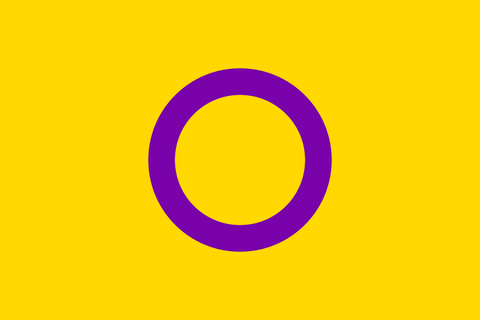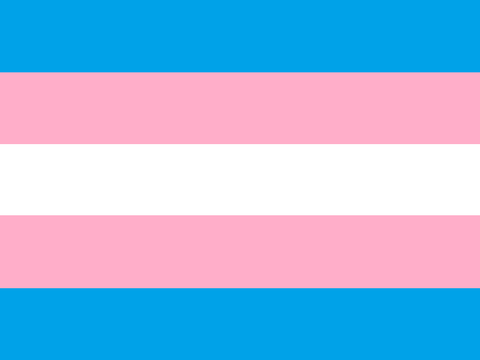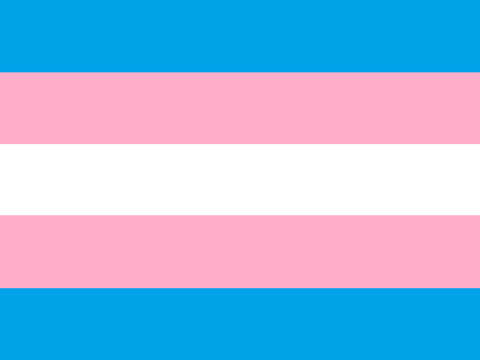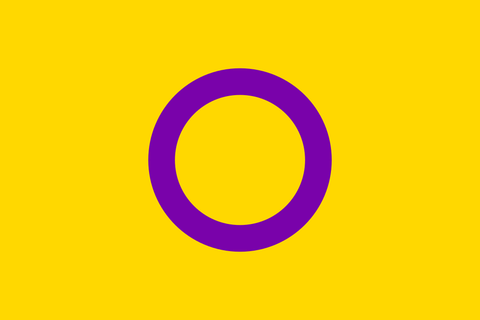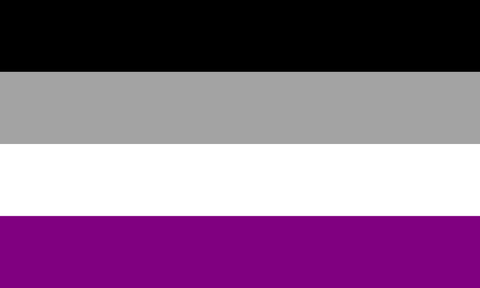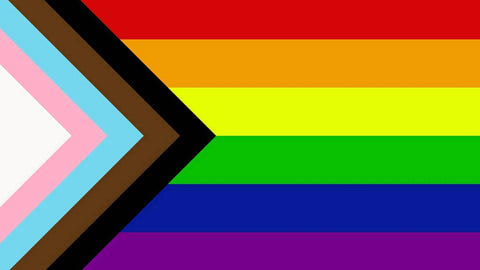15 Historical LGBTQ+ Milestones that Shaped Our World // LGBTQ+ History
| Updated on
A Kaleidoscope of History and Identity
Step into a world where love defies conventions, where courage ignites revolutions, and where history is painted with the vivid hues of LGBTQ+ identity. Welcome to a captivating journey through time, as Heckin’ Unicorn unveils the top 15 historical events that have carved an indelible mark on the LGBTQ+ movement. From audacious pioneers to resounding victories, join us as we explore the tapestry of history that celebrates the strength of pride and resilience.
#1: The Stonewall Uprising – A Beacon of Liberation (1969)

The vibrant streets of New York City's Greenwich Village bore witness to a seismic shift in LGBTQ+ history during the summer of 1969. The Stonewall Uprising, fueled by years of oppression and frustration, marked a defiant turning point as the LGBTQ+ community erupted in protest against police raids and societal discrimination. The spark that ignited this historic uprising came from the most courageous quarters – transgender women of colour, such as Marsha P. Johnson and Sylvia Rivera. These courageous trailblazers, often marginalised even within the LGBTQ+ movement, stood at the forefront of the battle for equality and acceptance.
For six nights, the Stonewall Inn became a battleground of resistance and resilience, a testament to the power of unity against injustice. The queer and transgender community, along with allies, fought back against the police, refusing to be silenced any longer. This groundswell of defiance resonated beyond those few nights, echoing into the future as a call to action. The Stonewall Uprising galvanised the LGBTQ+ community, paving the way for the establishment of activist organisations and the birth of the modern LGBTQ+ rights movement. It fueled a renewed sense of pride and visibility, ultimately leading to the first Pride march, held on the first anniversary of the uprising in 1970, forever transforming the trajectory of LGBTQ+ history.
As we reflect on the legacy of the Stonewall Uprising, it serves as a powerful reminder of the resilience and determination of marginalised communities. The events of those nights, marked by fierce resistance against oppression, continue to reverberate as a source of inspiration for those who seek justice and equality. The Stonewall Uprising's impact extends far beyond its immediate aftermath, influencing subsequent generations to stand up, speak out, and fight for a world where diversity and love are celebrated without fear or prejudice.
Article continues below
#2: The Decriminalisation of Homosexuality in India – A Landmark Verdict (2018)

In 2018, India's Supreme Court rendered a historic verdict that reverberated not only throughout the nation but across the globe. This monumental decision struck down Section 377 of the Indian Penal Code, a colonial-era law that had criminalised consensual homosexual acts for decades. The ruling was a watershed moment for LGBTQ+ rights in India, marking a significant step towards equality and acceptance. The court's recognition that love knows no gender and that consensual relationships should not be criminalised marked a seismic shift in societal attitudes.
The decriminalisation of homosexuality in India had profound implications beyond the legal sphere. It sent a powerful message of hope to millions of LGBTQ+ individuals who had faced societal stigma, discrimination, and even violence due to their sexual orientation. The judgement sparked a wave of celebration, with pride parades and gatherings across the country echoing the sentiment that love should be free from the constraints of prejudice. Beyond the borders of India, the verdict resonated as an emblem of progress, showing that even in deeply rooted conservative contexts, change is possible through determination and advocacy.
The impact of this verdict extended far beyond legality; it was a triumph for humanity and empathy. The ruling catalysed conversations about LGBTQ+ rights in India and around the world, inspiring movements and discussions about inclusivity, equality, and the fundamental right to love who one chooses. The decriminalisation of homosexuality in India serves as a beacon of hope, illustrating that societal change is achievable through persistence, education, and the unwavering belief in the principle that all individuals deserve respect and dignity, regardless of their sexual orientation.
Article continues below
#3: The Berlin Institute for Sexual Science – Pioneering Understanding (1919)

Amid the tumultuous landscape of pre-World War II Germany, Dr. Magnus Hirschfeld's establishment of the Berlin Institute for Sexual Science (Institut für Sexualwissenschaft) marked a groundbreaking stride toward understanding and advocating for LGBTQ+ rights. Founded in 1919, the institute became a sanctuary where the complexities of human sexuality were explored with a scientific and compassionate lens. Hirschfeld and his colleagues engaged in groundbreaking research, seeking to unravel the mysteries of sexual orientation and gender identity at a time when such discussions were largely taboo.
The significance of the Berlin Institute for Sexual Science cannot be overstated. It provided a space for LGBTQ+ individuals to share their stories and experiences, facilitating a sense of belonging and validation. Hirschfeld's work laid the foundation for modern concepts of sexual orientation and gender identity, challenging prevailing notions of binary gender and heteronormativity.
Unfortunately, the institute was tragically destroyed by the Nazis in 1933. However, its legacy endures as a testament to the power of knowledge and empathy to drive social change.
Hirschfeld's pioneering efforts paved the way for a more informed understanding of human diversity, contributing to a shift in societal attitudes. By fostering open conversations about sexuality and identity, the institute initiated a ripple effect that would eventually lead to greater visibility and acceptance of LGBTQ+ individuals. The lessons learned from the Berlin Institute for Sexual Science continue to resonate, reminding us that knowledge and compassion are essential tools in dismantling discrimination and fostering an inclusive society that celebrates the rich tapestry of human experiences.
Article continues below
#4: The Founding of STAR by Marsha P. Johnson and Sylvia Rivera – Nurturing a Transgender Revolution (1970)

In 1970, Marsha P. Johnson and Sylvia Rivera, two transgender activists and prominent figures in the LGBTQ+ rights movement, founded the Street Transvestite Action Revolutionaries (STAR). This pioneering organisation emerged as a response to the dire needs of transgender and homeless individuals, many of whom were abandoned by their families and marginalised by society. Johnson and Rivera recognised the urgent need for a safe haven where transgender people could access shelter, support, and advocacy – a space where they could thrive despite societal challenges.
The formation of STAR was an act of profound compassion and activism. Johnson and Rivera were not content with merely challenging discriminatory laws and attitudes; they aimed to create tangible change in the lives of transgender and homeless individuals. Operating out of a communal housing system, STAR provided a sense of belonging and safety to those who had been abandoned by traditional support systems. Beyond shelter, STAR offered resources, community-building initiatives, and vital support networks that extended a lifeline to transgender people who were often left to navigate the world alone.
The impact of STAR is immeasurable, as it set a precedent for grassroots activism focused on transgender rights and issues. Johnson and Rivera's visionary work laid the groundwork for organisations and initiatives that continue to advocate for transgender individuals' rights today. STAR remains a testament to the power of grassroots activism, demonstrating that when individuals come together with a shared purpose and a commitment to fostering change, they can create a transformative ripple effect that reverberates through history. The legacy of Marsha P. Johnson and Sylvia Rivera and their founding of STAR continues to inspire ongoing efforts to uplift and empower transgender individuals, nurturing a movement that strives for justice, equality, and a more inclusive world.
Article continues below
#5: The AIDS Epidemic – Turning Pain into Activism (1980s)

Amidst the alarming rise of the AIDS epidemic in the 1980s, the LGBTQ+ community demonstrated an unwavering commitment to their own. As the world grappled with the devastating loss of countless lives, a powerful movement emerged from the shadows of sorrow. The formation of ACT UP (AIDS Coalition to Unleash Power) marked a turning point in LGBTQ+ history, igniting a passionate fight against government inaction and societal stigma. With the rallying cry "Silence = Death," activists took to the streets, demanding urgent research, medical access, and compassion for those affected by the disease.
ACT UP's bold actions and strategies reverberated far beyond the LGBTQ+ community, galvanising a broader understanding of the urgency of the epidemic. Die-ins, protests, and creative acts of civil disobedience thrust the issue into the public consciousness, pressuring governments and pharmaceutical companies to accelerate research efforts and improve access to life-saving treatments. The AIDS Memorial Quilt, a poignant and tangible representation of the epidemic's toll, covered acres of land with panels honouring the lives lost. This movement underscored the fierce determination of the LGBTQ+ community to protect its own and illustrated the power of solidarity in times of crisis.
Today, the legacy of the AIDS epidemic's activism lives on as a reminder of the strength that arises from unity. It serves as a poignant example of how pain and adversity can be transformed into a force for change and compassion. As the world continues to grapple with health crises, the AIDS epidemic stands as a beacon of resilience, inspiring us to never underestimate the power of collective action and advocacy in the face of seemingly insurmountable challenges. The lessons learned from this dark chapter in history continue to guide us towards empathy, understanding, and the unwavering belief in the value of every life.
Article continues below
#6: The First Pride March – A Defiant Step Towards Visibility and Liberation (1970)

The year 1970 marked a pivotal moment in LGBTQ+ history with the inaugural Pride march, a groundbreaking event that has since become an annual celebration of identity, unity, and liberation. The spark that ignited this momentous occasion was the Stonewall Uprising of 1969, a fierce response to police raids and discrimination at the Stonewall Inn in New York City. Just a year later, on June 28, 1970, LGBTQ+ individuals and their allies took to the streets of Manhattan for what would become the first Pride march, then known as Christopher Street Liberation Day.
The first Pride march was not just a parade; it was a declaration of visibility, resilience, and a demand for equal rights. LGBTQ+ individuals, who had for so long been marginalised and silenced, seized the opportunity to unite and assert their presence in the public sphere. The march was a bold act of defiance against societal norms and government oppression, embodying the spirit of Stonewall and celebrating the freedom to express one's authentic self. The marchers' courage in stepping out into the open, unapologetically, marked a turning point in LGBTQ+ history, signalling a seismic shift towards self-acceptance, community, and a shared commitment to justice.
The impact of the first Pride march rippled far beyond that single day. It laid the foundation for a global movement that continues to grow, evolve, and challenge systems of discrimination. Subsequent Pride events around the world have embraced the legacy of that first march, embodying its themes of love, acceptance, and advocacy. Today, Pride marches are celebrated annually, not only as joyful and colourful parades but as symbolic displays of the progress that has been made in the fight for LGBTQ+ rights. The first Pride march in 1970 remains a powerful reminder that collective action can create seismic shifts in society, igniting change and reminding LGBTQ+ individuals that they are worthy of love, acceptance, and equality.
Article continues below
#7: The Trevor Project – Lifelines for LGBTQ+ Youth (1998 – present day)

Amidst the complexities of growing up and navigating personal identities, LGBTQ+ youth often face unique challenges that require understanding and support. The establishment of The Trevor Project in 1998 marked a significant turning point in providing a lifeline for young individuals struggling with their sexuality or gender identity. Named after a short film that explored the tragic consequences of LGBTQ+ intolerance, this organisation has become a beacon of hope, offering crisis intervention and suicide prevention services to LGBTQ+ youth in the United States.
The Trevor Project's mission is rooted in the firm belief that every LGBTQ+ young person deserves a safe space to share their feelings and experiences. The organisation operates a 24/7 crisis hotline and provides digital resources that allow youth to connect with trained counsellors and peers who understand their unique struggles. By offering a nonjudgmental and empathetic ear, The Trevor Project helps prevent feelings of isolation and despair from escalating into potentially life-threatening situations. The impact of this initiative extends beyond crisis intervention – it sends a powerful message that LGBTQ+ youth are valued and cherished, reinforcing the idea that their existence matters.
The significance of The Trevor Project cannot be overstated, as it sheds light on the critical need for mental health resources tailored to the LGBTQ+ community. By creating a safe and welcoming environment for vulnerable youth, this organisation is actively rewriting the narrative of despair into one of hope. The Trevor Project not only saves lives but also fosters a sense of community and resilience among LGBTQ+ youth, empowering them to embrace their identities and navigate life's challenges with strength and confidence. In a world where acceptance can still be a struggle, The Trevor Project stands as a lifeline, illuminating the path toward a brighter future for LGBTQ+ individuals.
Article continues below
#8: Marriage Equality Worldwide – Love Wins (2001)

The global movement for marriage equality has been a powerful force reshaping societal norms and challenging discriminatory laws. From the pioneering steps taken in the Netherlands in 2001 to the monumental decisions in countries such as the United States, Canada, and Australia, the journey towards legalising same-sex marriage has been marked by both triumphs and hurdles. These legal victories not only validate LGBTQ+ relationships but also symbolise a profound shift towards inclusivity and equality under the law.
The fight for marriage equality is grounded in the belief that love should know no bounds, and that all individuals, regardless of their sexual orientation or gender identity, have the right to make a lifelong commitment to the person they love. These legal victories represent a seismic cultural shift, challenging deeply ingrained prejudices and paving the way for broader acceptance. The global march toward marriage equality demonstrates that progress can be achieved through perseverance, education, and the unwavering belief that love is a fundamental human right.
The impact of marriage equality reaches far beyond legal recognition. It resonates within families, schools, and workplaces, challenging societal biases and fostering conversations about the importance of love and commitment. By celebrating love in all its forms, these legal triumphs are contributing to a world where LGBTQ+ individuals can openly embrace their identities without fear of discrimination. While the road to equality is ongoing, the victories achieved so far are a testament to the power of the LGBTQ+ community's collective voice and the allies who stand beside them, proving that love ultimately prevails.
Article continues below
#9: The Repeal of "Don't Ask, Don't Tell" – Breaking the Silence in the Military (2010)

For decades, LGBTQ+ individuals faced discrimination and silence within the United States military. The "Don't Ask, Don't Tell" (DADT) policy, enacted in 1993, mandated that LGBTQ+ service members could not openly disclose their sexual orientation without facing expulsion. This policy perpetuated a culture of fear and secrecy, forcing countless individuals to hide their identities to protect their careers and livelihoods. The repeal of DADT in 2010 marked a significant milestone in the fight for LGBTQ+ rights, transforming the landscape of the military and affirming that bravery and dedication should be recognised regardless of sexual orientation.
The repeal of DADT represented a monumental shift in societal attitudes and legislative progress. It signalled a growing recognition that LGBTQ+ individuals deserve the same rights and opportunities as their heterosexual counterparts. The courageous advocacy of LGBTQ+ service members and their allies played a crucial role in pushing for change. Their voices, stories, and unwavering commitment to their country contributed to the momentum that led to the repeal, showing that love for one's country and one's identity need not be mutually exclusive.
The impact of the repeal of DADT extended beyond policy changes. It sent a powerful message to LGBTQ+ individuals everywhere, affirming that they could be their authentic selves without fear of retribution or discrimination. The repeal shattered stereotypes and misconceptions, showcasing that LGBTQ+ individuals can excel in any field, including those traditionally associated with masculinity and strength. This landmark event also highlighted the power of advocacy and perseverance in bringing about change, inspiring a new generation of activists to continue fighting for equality and justice. The repeal of DADT stands as a testament to the resilience of the LGBTQ+ community and a reminder that progress is possible through collective action and unwavering determination.
Article continues below
#10: The Mainstream Success of RuPaul's Drag Race – Redefining LGBTQ+ Visibility (2009 – present day)

RuPaul's Drag Race, a reality competition show featuring drag queens from diverse backgrounds, has transcended its role as entertainment to become a cultural phenomenon with profound effects on the LGBTQ+ movement. Debuting in 2009, the show quickly gained a dedicated following, drawing audiences from all walks of life and breaking down barriers in its portrayal of drag culture and LGBTQ+ experiences.
The mainstream success of RuPaul's Drag Race marked a significant shift in LGBTQ+ representation on television. The show celebrated self-expression, creativity, and the artistry of drag as it introduced audiences to the diverse stories of the contestants. Through a mix of challenges and personal narratives, the show humanised the drag community, offering insight into the struggles and triumphs of LGBTQ+ individuals while dispelling stereotypes.
The show's impact on the LGBTQ+ movement extended beyond its entertainment value. It provided a platform for drag queens to share their stories and engage in conversations about identity, acceptance, and self-love. Drag Race also highlighted the power of chosen families and the bonds forged within the LGBTQ+ community. As the show gained popularity, it contributed to a broader dialogue about gender identity, sexual orientation, and the importance of embracing one's authentic self. RuPaul's Drag Race became more than a show; it became a catalyst for discussions about LGBTQ+ representation, paving the way for increased visibility and understanding.
Article continues below
#11: The Creation of the First Rainbow Pride Flag – A Symbol of Unity and Diversity (1978)

In 1978, artist and activist Gilbert Baker designed the iconic rainbow flag, a vibrant and meaningful symbol that has since become synonymous with the LGBTQ+ rights movement. Harvey Milk, the first openly gay elected official in California, challenged Baker to create a symbol that would unite and uplift the LGBTQ+ community. The result was the rainbow flag, which made its debut at the San Francisco Gay Freedom Day Parade that same year.
The rainbow flag's significance lies in its representation of unity and diversity within the LGBTQ+ community. Each of the flag's colors holds a specific meaning – red for life, orange for healing, yellow for sunlight, green for nature, blue for harmony, and purple for spirit. The flag's creation was a powerful act of artistry and activism, providing LGBTQ+ individuals with a visual representation of their shared struggles and triumphs. The flag quickly gained traction and spread to other Pride events, becoming a universal symbol of pride and a rallying point for LGBTQ+ rights.
Beyond its vibrant appearance, the rainbow flag is a testament to the power of symbols in effecting change. It provided a visual language that transcended barriers, facilitating conversations about LGBTQ+ rights and acceptance. The flag has become a unifying force, inspiring individuals to embrace their identities and advocate for equality. It serves as a reminder that even in the face of adversity, creativity and activism can create lasting symbols that foster a sense of belonging, visibility, and unity for marginalised communities. The first rainbow Pride flag continues to wave as a beacon of hope, proudly representing the LGBTQ+ community's ongoing journey towards recognition, acceptance, and justice.
Article continues below
#12: The Lambda Literary Awards – Elevating LGBTQ+ Voices in Literature (1989)

The written word has an unparalleled ability to capture the essence of human experiences, challenge societal norms, and spark conversations that lead to change. The Lambda Literary Awards, fondly known as the "Lammys," have been at the forefront of recognising and celebrating the vital role LGBTQ+ voices play in literature. Established in 1989, these awards have not only celebrated exceptional LGBTQ+ literature but also reshaped the literary landscape by providing a platform for diverse voices to be heard.
The Lambda Literary Awards have been instrumental in expanding the breadth and depth of LGBTQ+ representation in literature. By honouring a wide range of genres, from fiction and poetry to nonfiction and graphic novels, these awards ensure that the multifaceted experiences of LGBTQ+ individuals are authentically depicted and acknowledged. This recognition not only validates LGBTQ+ authors but also empowers them to continue writing stories that resonate with readers from all walks of life. The awards also serve as a means of discovery for readers looking to engage with LGBTQ+ narratives that reflect their own experiences or offer glimpses into different perspectives.
Beyond their role in the literary world, the Lambda Literary Awards hold cultural significance by contributing to the ongoing dialogue about LGBTQ+ representation, visibility, and acceptance. By highlighting works that explore a wide range of themes – from identity and love to activism and social justice – the awards promote a deeper understanding of the LGBTQ+ community. They remind us that literature is a mirror that reflects the complexities of the human experience and that every narrative, no matter how unique, holds the power to connect us and expand our collective empathy. The Lambda Literary Awards stand as a testament to the resilience, creativity, and profound impact of LGBTQ+ authors who continue to shape the literary landscape for generations to come.
Article continues below
#13: The Mattachine Society's Formation – Pioneering Advocacy in the Shadows (1950)

The formation of the Mattachine Society in 1950 marked a groundbreaking moment in LGBTQ+ history, laying the foundation for organised advocacy and fostering a sense of community amidst widespread discrimination. Founded by activist Harry Hay and a group of like-minded individuals, the society was one of the earliest LGBTQ+ organisations in the United States. Operating under a veil of secrecy due to the oppressive climate of the time, the Mattachine Society worked diligently to create spaces for LGBTQ+ individuals to connect, share their experiences, and advocate for their rights.
The society's name, inspired by a mediaeval French society of masked performers who criticised societal norms, reflected the clandestine nature of their early activities. In an era when homosexuality was often criminalised and stigmatised, the Mattachine Society provided a lifeline for individuals seeking camaraderie and support. While their public presence was limited due to the risks involved, their formation was a revolutionary act that laid the groundwork for future LGBTQ+ organisations and the fight for equality.
The Mattachine Society's impact reverberated beyond its immediate circles. It paved the way for a new era of LGBTQ+ activism, inspiring others to challenge unjust laws and societal prejudices. While the society operated in relative obscurity, its contributions were profound, setting the stage for the more visible and vocal LGBTQ+ rights movement that emerged in the decades to come. The legacy of the Mattachine Society serves as a reminder that even in the face of adversity, a small group of committed individuals can spark change, sowing the seeds of progress for future generations.
Article continues below
#14: The AIDS Memorial Quilt – Stitching Memories, Demanding Action (1985 – present day)

In the midst of the devastating AIDS epidemic of the 1980s and 1990s, the AIDS Memorial Quilt emerged as a poignant and deeply moving symbol of remembrance, resilience, and a demand for action. Conceived by LGBTQ+ activist Cleve Jones in 1985, the quilt was a grassroots initiative that aimed to honour the lives lost to AIDS-related illnesses and to humanise the epidemic by attaching faces and stories to the staggering statistics. Each quilt panel represented an individual, a life cut short, and a network of friends, family, and communities left in grief.
The AIDS Quilt became a powerful form of protest against the government's inadequate response to the crisis and the stigma surrounding the LGBTQ+ community. As the quilt grew in size and scope, covering acres of land and spanning countless panels, it served as a visual representation of the enormity of the loss and a plea for compassion, funding, and research. The quilt's public displays and travelling exhibitions allowed people from all walks of life to connect with the stories it told, fostering empathy and a deeper understanding of the human toll of the epidemic.
The AIDS Memorial Quilt transcended its role as a memorial and became a catalyst for change. It put a human face on the crisis, shifting public opinion and increasing awareness about the urgent need for medical research, accessible healthcare, and support for those affected by AIDS. The quilt's creation and display were acts of activism that highlighted the resilience of the LGBTQ+ community and its allies in the face of tragedy. It showed that even in the darkest of times, art and collective action can serve as powerful tools for healing, advocacy, and fostering a sense of unity in the face of adversity.
Article continues below
#15: Taiwan's Legalisation of Same-Sex Marriage – A Landmark Achievement (2019)

In May 2019, Taiwan made history as the first country in Asia to legalise same-sex marriage. The road to this landmark achievement was marked by years of advocacy, activism, and a strong determination to secure equal rights for LGBTQ+ individuals. The legalisation not only represented a legal victory but also marked a profound cultural shift in a region where LGBTQ+ rights were often contested. Taiwan's journey towards marriage equality serves as an inspiring example of progress driven by grassroots efforts and a commitment to justice.
The legalisation of same-sex marriage in Taiwan was the culmination of a multifaceted campaign that brought together LGBTQ+ activists, allies, and supporters. The movement gained momentum through protests, rallies, and public awareness campaigns that aimed to challenge societal biases and promote understanding. The tireless work of LGBTQ+ organisations and individuals paved the way for legislative change, as well as a shift in public opinion that allowed for more inclusive policies.
Taiwan's achievement in legalising same-sex marriage has reverberated beyond its borders. The move set a precedent for other countries in Asia, inspiring conversations about LGBTQ+ rights and opening doors for similar progress. It highlighted the transformative power of legal recognition, affirming the importance of love, commitment, and equality for all individuals, regardless of their sexual orientation or gender identity. Taiwan's journey towards marriage equality sends a clear message that change is possible, even in regions where cultural and historical norms may present challenges. It stands as a testament to the resilience of the LGBTQ+ community and the allies who joined forces to create a more inclusive and just society.
Conclusion: A Tapestry of Triumphs and Transformation
The history of the LGBTQ+ community is a testament to the power of resilience, advocacy, and the unwavering pursuit of equality. From the daring actions at the Stonewall Inn to the historic legal victories and cultural shifts around the world, these 15 LGBTQ+ historical events showcase a tapestry of triumphs that have shaped the course of human rights. Each event represents a step forward in the journey towards recognition, acceptance, and justice for LGBTQ+ individuals, demonstrating that progress is possible even in the face of adversity.
As we reflect on these significant moments, it's essential to recognise the individuals, activists, allies, and organisations that have tirelessly worked to create a more inclusive world. These events remind us that change is often driven by collective action and the willingness to stand up against discrimination, stigma, and injustice. The LGBTQ+ community's history is rich with stories of courage, resilience, and the transformative power of love, and it serves as an inspiration for generations to come.
While these 15 events are a glimpse into the remarkable strides that have been made, they are by no means an endpoint. The fight for LGBTQ+ rights continues, and each achievement serves as a stepping stone toward a more equitable future. Through ongoing advocacy, education, and unity, the LGBTQ+ community and its allies continue to shape a world where diversity is celebrated, identities are respected, and love knows no boundaries. The journey towards full equality is a collective effort, and these historical events remind us that every step forward is a testament to the indomitable spirit of the LGBTQ+ community and the shared commitment to a more inclusive world for all.

